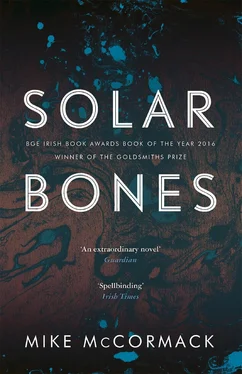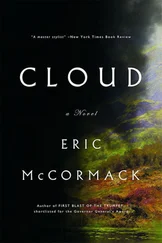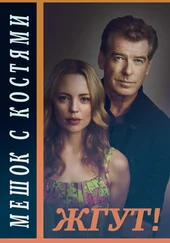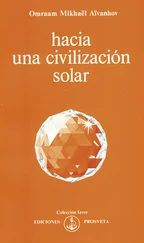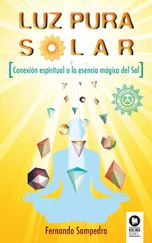Roches Point Automatic, East-southeast, eleven knots, fair, ten miles, 1016 millibars, falling slowly
Valentia, East-southeast, eleven knots, cloudy, seven miles, 1020 millibars, falling slowly
falling slowly
followed by the time signal which led in the news, the sound of which always assured me that now the day was properly started, the world up and about its business with all its stories of conflict and upheaval at home and abroad cranking into gear, its tales of commercial and political fortune convulsing across borders and time-zones with currencies and governments rising and falling, the whole global comedy rounded out by the weather which invariably promised rain or a cold spell when
I would rinse out my cup and leave it on the draining board, then off to work where I’d do a couple of hours at my desk till eleven o’clock before reaching into the drawer and taking out my transistor radio with its silver antenna — I’ve always thought there was something plaintive about this small receiver trying to snag a signal within the heart of that concrete bunker — to listen to the headlines with a cup of coffee and a sandwich after which I’d return to work only to tune in again for the main news at one o’clock, the stiff midday fix with interviews and analysis that took me through to the six o’clock evening bulletin on the small television here in the kitchen by which time most of the day’s national news stories will have come to a head and received their fullest analysis after which the nine o’clock news is generally a summary of the day’s national events, unmissable for peace of mind at the end of the day but stale as regards new national issues which have at this hour, by and large, been put to bed for the night, so that now my attention broadens out to those global dramas which are in play across those jurisdictions that are still in daylight till finally, after midnight, by which time Mairead will have gone to bed, I’d spend a few last minutes standing here in the kitchen watching Sky News round up the day’s major headlines before going to bed, all in all
dawn to dark
six or seven news bulletins needing my attention
all spaced out at regular intervals, the day structured like the monastic rule of some vigilant order synched to the world’s rhythms and all its upheavals which, as history’s vast unfolding, are part of my responsibility as a citizen to keep abreast of, attuning myself to their distant heaves because, even if such things are unlikely to touch me with the violent immediacy of bombs or bullets, who is to say that they would not lay their electric fingers on me in some other way which could push my life into some new alignment or along some other route so that
in this way news bulletins provided another rhythm to my day, a steady pulse across its length and it was only when thought of it like this that I saw it as yet another thing
handed down from my father who was
a great listener to the news also, his own days set to the same tempo, sitting into his breakfast and dinner just as the time signal for news bulletins sounded, taking his cap off to hang it on the back of the chair as he lent an ear to the old valve radio which sat on the deep window sill, and
till those fevered days of Mairead’s illness I had never seen my own news habit as anything other than that — a habit passed down from my father — but which now in the circumstances of Mairead’s illness, it came with a sharpened sense of involvement in some broader process beyond myself which initially baffled me because while I might have some abstract recognition of myself as a citizen — a fully documented member of a democracy with a complete voting record in all elections since I had come of age — I never had any intimate sense of history’s immediate forces affecting my day-to-day life, not even, I have to admit, during those work meetings where large public facilities and budgets were being decided upon, meetings in which I would sit with politicians and developers to argue this or that point or amendment or development while all the time knowing that the odds were stacked against me as an engineer and that in all likelihood I was going to lose an engineering decision to some political consideration, a verdict which would see some public facility shifted from its optimum site towards some other part of the county where it would best benefit the politician across the table who’d take pride of place at a ribbon-cutting ceremony and the attendant photo op, not even then did I have a full sense of myself as an engaged citizen within a political horizon, so heedless of it that, if the point were pressed to me, I would have been startled or even embarrassed by the notion which
began to weigh on me during those days when my wife lay sweating through two changes of sheets and pyjamas a day, her ordeal showing me that history and politics were now personal, no longer blithe abstractions or pallid concepts but physically present in the flesh and blood figure of Mairead whose plight inspired me to render the whole circumstance down to a manageable formula –
history was personal and politics was personal or
to put it another way
history and politics were now a severe intestinal disorder, spliced into the figure of my wife who sweated along the pale length of her body with the stylised, beatific glow of an allegorical figure in an altarpiece while
day by day, listening to the news bulletins, I developed a twitchy impatience towards those other global issues which commanded the main headlines as it became obvious that only when these grand themes had been treated and analysed would the news bulletins turn their attention to the environmental health hazard out west, a ragged postscript tagged onto the bottom of these bigger stories where it would be given a cursory review or status update, and this wait grated on my patience as I interpreted it as a sure sign that the story was failing to gain any proper hold in the nation’s consciousness even as the crisis worsened and the city’s hospital beds continued to fill up, the number of registered cases now tipping three hundred in the middle of the week so that
I began to feel this insult keenly, anger simmering within me as I craned forward in my chair to listen to the Western correspondent — an old man with a goatee who looked more like a professor of Classics than someone reporting on an environmental health issue — give the latest update with its gradual escalation and rising numbers, his account moving from these broad strokes to the logistical and engineering options being explored by the municipal authorities and
throughout all these accounts plus the attendant commentaries I found myself trying to hear something which fully recognised the reality of what it really meant to be someone like Mairead who was taking the brunt of it, all its sickness and wasting, but there was no such acknowledgement in those droning voices as councillors and engineers, one after another, came before mic and camera to speak in defensive assurances which leant heavily on the repetition of preprogrammed mantras that were carefully calibrated to contain nothing to which the speaker might be held accountable, spokesmen droning on as the days passed, pushing the story into some bloodless realm which left the individual human scale of the thing untouched, the human grit of the situation untold so that my anger mounted with each interview, something incredulous festering within me and well fermented by the time
the city’s people organised the first major public protest meeting which took place in the grounds of the city offices, around two hundred people assembled in the garden and car park, some of them climbing onto the stone wall to speak to the crowd which had gathered in their coats and caps and umbrellas, standing in the rain which had fallen steadily since mid-morning, to voice at first their disbelief that this water crisis could happen in a coastal city with one of the highest mean annual rainfalls on the whole of the continent, a civic disaster which had reduced its people to the condition of third-world supplicants who were now forced to queue up for water at relief points throughout the suburbs, a shameful state of affairs which several speakers frankly admitted they were embarrassed about and
Читать дальше
